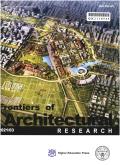Gender differences in air movement preference after moderate-intensity exercise
IF 3.6
1区 艺术学
0 ARCHITECTURE
引用次数: 0
Abstract
This study investigates the air movement preference of males and females after moderate-intensity exercise. 35 participants dressed in 0.6 clo exercised for 15 min in a room at 30 °C and then entered another room at 24 °C/26 °C/28 °C. During the experiment, participants were able to adjust the fan speed according to their own thermal comfort needs. The results indicate that after a change in metabolic rate, female prefer higher fan usage and greater air movement compared to males. When the body returns to thermal comfort, male have higher fan usage and prefer higher air movement than female. There were no difference in subjective evaluation and skin temperature between female and male. However, the skin evaporative heat loss of female was significantly lower than that of male. The correlation between air temperature, air speed and the time after entering the room tailored to the thermal requirements of distinct genders following moderate-intensity exercise has been established, which can provide a comprehensive control strategy for achieving both comfortable and energy-efficient thermal environments.
中等强度运动后空气运动偏好的性别差异
本研究探讨了男性和女性在中等强度运动后的空气运动偏好。35名参与者穿着0.6℃的衣服,在30°C的房间里锻炼15分钟,然后进入另一个24°C/26°C/28°C的房间。在实验过程中,参与者可以根据自己的热舒适需求调节风扇转速。结果表明,在代谢率发生变化后,与男性相比,女性更喜欢使用更多的风扇和更大的空气流动。当身体恢复到热舒适时,男性比女性使用更多的风扇,更喜欢更多的空气流动。男性和女性在主观评价和皮肤温度方面没有差异。然而,雌性的皮肤蒸发热损失显著低于雄性。在中等强度运动后,根据不同性别的热需求,建立了温度、风速和进入房间后时间之间的相关性,这可以为实现舒适和节能的热环境提供全面的控制策略。
本文章由计算机程序翻译,如有差异,请以英文原文为准。
求助全文
约1分钟内获得全文
求助全文
来源期刊

Frontiers of Architectural Research
ARCHITECTURE-
CiteScore
6.20
自引率
2.90%
发文量
430
审稿时长
30 weeks
期刊介绍:
Frontiers of Architectural Research is an international journal that publishes original research papers, review articles, and case studies to promote rapid communication and exchange among scholars, architects, and engineers. This journal introduces and reviews significant and pioneering achievements in the field of architecture research. Subject areas include the primary branches of architecture, such as architectural design and theory, architectural science and technology, urban planning, landscaping architecture, existing building renovation, and architectural heritage conservation. The journal encourages studies based on a rigorous scientific approach and state-of-the-art technology. All published papers reflect original research works and basic theories, models, computing, and design in architecture. High-quality papers addressing the social aspects of architecture are also welcome. This journal is strictly peer-reviewed and accepts only original manuscripts submitted in English.
 求助内容:
求助内容: 应助结果提醒方式:
应助结果提醒方式:


